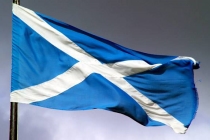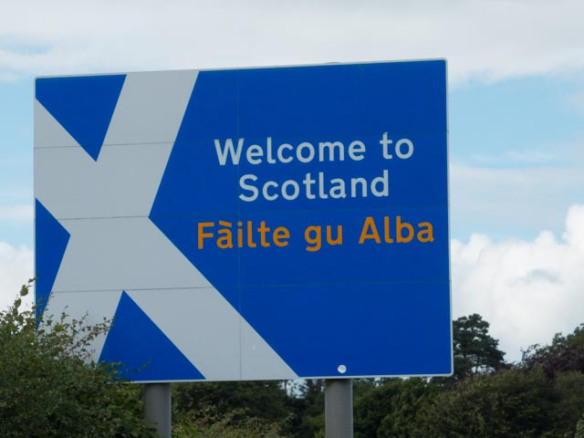English controlled media squeal in indignation at Gaelic first decision for Scotland's Western Isles Schools
Predictably much of the English press and their servile followers have been squealing with indignation at the decision for children starting school in the Western Isles to be taught in Gaelic, unless their parents opt-out. Until now parents had to opt in to Gaelic-medium education (GME) on the islands, where lessons in English was the default. The truth is that the history of English rule in the Celtic lands has always had the design to make the Celtic people less Celtic. Part of this process has been their centuries old policies of destroying the language. Not only the language but other aspects of Celtic culture. Hence the attempts to even deny the very fact of the existence of a Celtic people.
In fact even the early classical writers of Greece, writing in the 6th and 5th century BC, acknowledged the existence of the Celts. What we do know is that by around 275 BC, the Celts influence and power stretched from the Atlantic seaboard in the west of Europe and included parts of the Iberian peninsula, the islands of Britain and Ireland, much of Western and Central Europe, part of Eastern Europe and into central Anatolia. There can be little doubt that the Celts viewed themselves in that period as an identifiable separate ethnically similar people. Sculptures carved at the time and found in many parts of Europe project a similar image of themselves over a significant geographical spread.
So the English media and their supporters can squeal as much as they want about the decision to presume all new primary one pupils in the Western Isles will be educated in Gaelic. It is the right decision and hugely important symbolically, it also reflects the reality of life in the area. Gaelic is widely spoken in the Western Isles and all schools in the area already offer the opportunity of education through the medium of Gaelic. However, we can expect the English controlled media to continue to complain. Celtic people have always known that that there has been an English policy to undermine their language and culture.
That is the reason why organisations to defend our heritage and culture, such as the Celtic Congress, were formed. Indeed prior to 1917 the Celtic Congress had a significant political aspect. The present Celtic League, an inter Celtic organisation, continues to campaign for the political, language, cultural and social rights of the Celtic nations. As respected historian and author Peter Berresford Ellis wrote in his book The Celtic Dawn, when referring to the establishment of the Celtic Congress:
“Members (of the Celtic Congress) were pledged to the revival of each Celtic language and to some degree of ‘official status’. Because of this, the early Celtic Congresses had a political hue. Indeed, the very act of speaking a Celtic language, let alone campaigning for its status, could be interpreted as an act of political expression when the Imperial government were actively discouraging the languages as a continuing part of their centuries-old policy of destroying them.”








